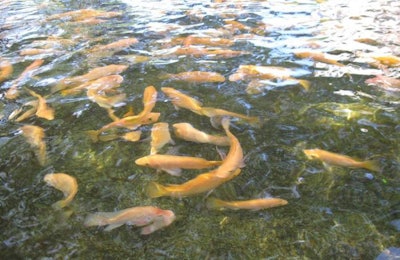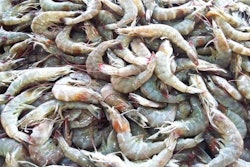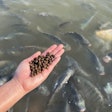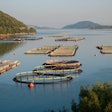
WorldFish has introduced a new, six-year strategy to boost sustainable aquaculture production and small-scale fisheries in developing countries.
WorldFish, an international, nonprofit research organization, says the strategy will help many of the world’s poorest fishers and fish farmers exit poverty.
“Sustainable aquaculture practices offer water, energy, and feed conversion efficiencies superior to any other domesticated animal food production system — and fish is the only animal-source food that can be produced in saltwater, offering unique advantages for climate resilient production,” said Nigel Preston, WorldFish director general. “The new WorldFish strategy outlines ambitious targets that will maximize the nutritional and livelihood benefits for millions of the world’s most vulnerable people.”
Sustainable Development Goals
The strategy for 2017-22 is aligned with the UN Sustainable Development Goals (SDGs), with emphasis on the goals of no poverty and zero hunger. Several other SDGs are addressed:
- Good health and well-being
- Gender equality
- Decent work and economic growth
- Reduced inequalities
- Responsible consumption and production
- Climate action
- Life below water
- Life on land
- Partnership for the goals
Targets for improvement
By 2022, WorldFish looks to reach several targets, which were calculated using data from outcomes of prior aquaculture and small-scale fisheries research. Those targets are:
- 5 million producer households adopting improved breeds, feeds, fish health and best management practices
- 3.5 million people assisted to exit poverty through gender-inclusive livelihood improvements
- 2.4 million fewer women, men and children suffering from deficiencies in essential micronutrients
- 3.3 million hectares (8.2 million acres) of ecosystems restored through productive and equitable management
- 4.7 million more women of reproductive age consuming an adequate number of food groups
- 4.8 million tons of fish farmed annually with improved climate resilience and reduced environmental impact
WorldFish’s six-year strategy focuses on eight countries: Bangladesh, Cambodia, Egypt, Myanmar, Nigeria, Solomon Islands, Tanzania and Zambia.
“Our strategy focuses on the three interlinked challenges of sustainable aquaculture, resilient small-scale fisheries and enhancing the contributions of fish to nutrition of the poor in the places where we can make the most difference,” said Blake Ratner, WorldFish director general designate. “These challenges will only be met by partnering with the communities, research innovators, entrepreneurs and investors who give fisheries and aquaculture its dynamism and promise.”
Research and innovation
One of WorldFish’s innovations is genetically improved farmed tilapia, which is an improved strain that grows up to 85 percent faster than standard tilapia. The strain has been disseminated in more than 14 countries.
Another one of WorldFish’s developments, the Abbassa strain of Nile tilapia, grows up to 30 percent than the country’s next best commercial strain and can reduce greenhouse gas emissions up to 36 percent over its production life cycle.










